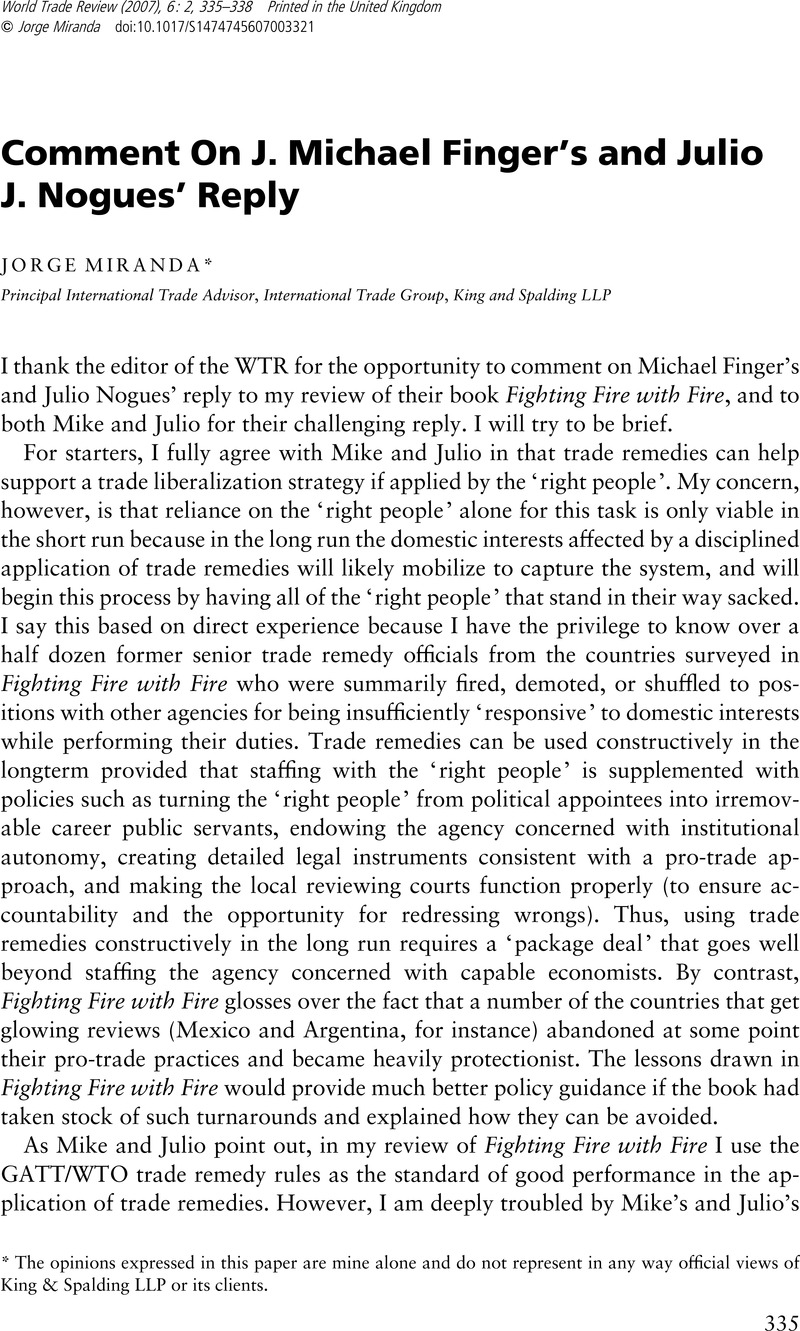No CrossRef data available.
Article contents
Comment On J. Michael Finger's and Julio J. Nogues' Reply
Published online by Cambridge University Press: 20 July 2007
Abstract

- Type
- Research Article
- Information
- Copyright
- Copyright © Jorge Miranda 2007
References
1 As Mike has consistently stressed in all of his contributions to the trade remedy literature, the GATT/WTO trade remedy rules do not inquire whether it would be welfaremaximizing for the economy of the importing country as a whole to impose trade remedy measures. Such rules, however, do not deter WTO Members from adopting individually a ‘public interest’ test that would embody this inquiry. So, contrary to Mike's perception, his concern about including a ‘public interest’test can be accommodated within the GATT/WTO trade remedy rules.
2 In their comment, Mike and Julio refer to Alan Sykes' well-known critique of the WTO's Appellate Body rulings in the area of safeguard measures. This short comment is not the right vehicle for properly discussing Sykes' critique. The fact remains, however, that Sykes' argument that ‘increased imports’ (the requisite ‘import surge’) are endogenous is contingent upon whether ‘unforeseen developments’ and ‘the effect of obligations incurred including tariff concessions’ come into play for purposes of analysis, which is an issue of legal interpretation. If the latter are visualized as factors triggering ‘increased imports’, then ‘increased imports’ are distinguishable from base imports, and the injury caused by ‘increased imports’ is separately identifiable.
3 Incidentally, I am not suggesting here that such flaws are necessarily attributable to sheer incompetence on the part of the staff of the investigating agencies. Rather, my guess, based upon conversations with individuals who were involved in the above and similarly flawed determinations, would be that political interference did not let the investigating authorities do their job properly.
4 I find difficulty in Mike's and Julio's justification of analytical flaws by Latin American trade remedy authorities on the basis of alleged ‘resource constraints’. The fact that Argentine trade remedy authorities lacked the financial means to verify pricing data submitted by Italian exporters is obviously not a valid reason for having discarded such data. This is akin to arguing that, if the tax authority lacks funds for auditing tax declarations, it should assess income taxes on the basis of the amounts it believes people make rather than on the basis of the amounts reported. Apart from this, the very notion that compliance with WTO requirements should be a function of the resources available is alarming. This would lead to concluding that countries should only be required to observe the WTO rules that they can comply with. I cannot think of a better recipe for chaos. Further, the approach collides with the basic WTO architecture. The WTO is a contract among nations. Therefore, except for its provisions relating to ‘special and differential treatment’ or making express reference to the case of developing countries, its legal disciplines cut across the board.


